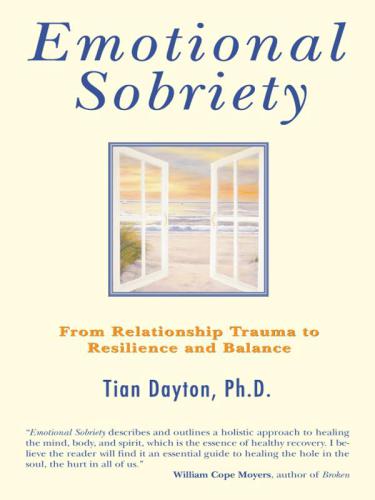
Emotional Sobriety
From Relationship Trauma to Resilience and Balance
کتاب های مرتبط
- اطلاعات
- نقد و بررسی
- دیدگاه کاربران
نقد و بررسی

December 15, 2007
Clinical psychologist Dayton (executive editor, "Journal of Group Psychotherapy"; "Trauma and Addiction") provides a superb analysis of and a fresh perspective on how to gain emotional stability after growing up with the trauma of addiction, abuse, and family dysfunction. While sharing her own experience with alcoholic parents, Dayton interweaves extensive neuropsychological research on how trauma chemically alters the brain with findings on how to undo the damage of trauma and reverse the negative effects trauma has on relationships and behavior. Basing her material on clinical data that reveal how emotions impact thinking more than the reverse, Dayton describes "emotional sobriety" as the ability to keep emotions, thoughts, and actions in balance. The numerous succinct chapters range over the impact of relationships on emotional development, how children's emotional stability can be jeopardized when exposed to trauma or abuse, and the impact of high stress, anxiety, depression, anger, grief, and fear. Dayton ends the work with solid information on finding forgiveness, setting up a healing network, and developing emotionally healthy habits. Broader than Janet Woititz's "Adult Children of Alcoholics", this guide will help individuals in recovery from a variety of dysfunctional family systems and helping professionals working with that audience. Highly recommended.Dale Farris, Groves, TX
Copyright 2007 Library Journal, LLC Used with permission.

























دیدگاه کاربران